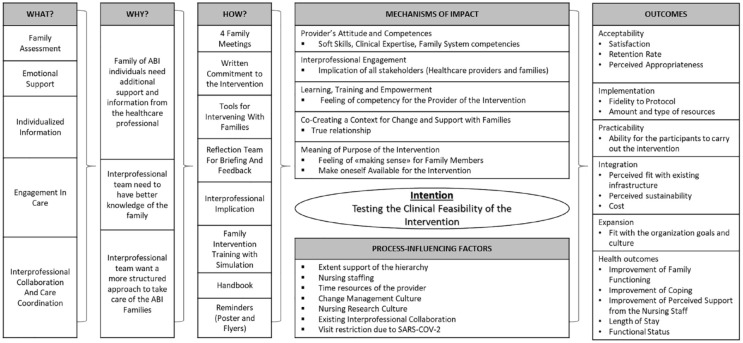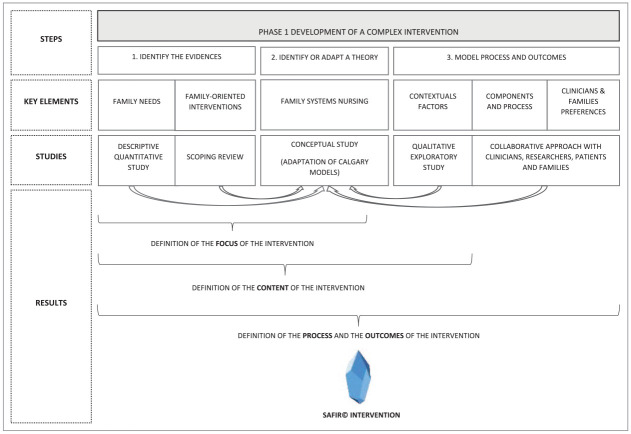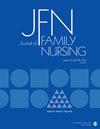Véronique de Goumoëns, Koffi Ayigah, Daniel Joye, Philippe Ryvlin, Anne-Sylvie Ramelet
下载PDF
{"title":"The Development of an Early Intervention for Supporting Families of Persons With Acquired Brain Injuries: The SAFIR<sup>©</sup> Intervention.","authors":"Véronique de Goumoëns, Koffi Ayigah, Daniel Joye, Philippe Ryvlin, Anne-Sylvie Ramelet","doi":"10.1177/10748407211048217","DOIUrl":null,"url":null,"abstract":"<p><p>Families of persons with acquired brain injuries need to be supported from the early phase of hospitalization. To date, no known early family intervention is available for this population. Using the Medical Research Council Framework, we developed a new intervention based on the Calgary Assessment and Intervention Models that includes the family preferences, clinician's expertise, and the contextual resources. This paper aims to describe the complete development process including a scoping review, an assessment of families and clinicians' needs, an evaluation of the contextual resources, and an adaptation of the theoretical framework. Using a systemic perspective, we tailored the new intervention to involve the stakeholder's preferences. The result is an early family intervention named SAFIR<sup>©</sup>, led by a clinical nurse specialist, including five core components and structured around three phases and a follow-up. The next steps will be focused on assessment of the clinical feasibility of this new intervention.</p>","PeriodicalId":50193,"journal":{"name":"Journal of Family Nursing","volume":"28 1","pages":"6-16"},"PeriodicalIF":2.6000,"publicationDate":"2022-02-01","publicationTypes":"Journal Article","fieldsOfStudy":null,"isOpenAccess":false,"openAccessPdf":"https://ftp.ncbi.nlm.nih.gov/pub/pmc/oa_pdf/78/92/10.1177_10748407211048217.PMC8814967.pdf","citationCount":"0","resultStr":null,"platform":"Semanticscholar","paperid":null,"PeriodicalName":"Journal of Family Nursing","FirstCategoryId":"3","ListUrlMain":"https://doi.org/10.1177/10748407211048217","RegionNum":3,"RegionCategory":"医学","ArticlePicture":[],"TitleCN":null,"AbstractTextCN":null,"PMCID":null,"EPubDate":"2021/10/7 0:00:00","PubModel":"Epub","JCR":"Q1","JCRName":"FAMILY STUDIES","Score":null,"Total":0}
引用次数: 0
引用
批量引用
Abstract
Families of persons with acquired brain injuries need to be supported from the early phase of hospitalization. To date, no known early family intervention is available for this population. Using the Medical Research Council Framework, we developed a new intervention based on the Calgary Assessment and Intervention Models that includes the family preferences, clinician's expertise, and the contextual resources. This paper aims to describe the complete development process including a scoping review, an assessment of families and clinicians' needs, an evaluation of the contextual resources, and an adaptation of the theoretical framework. Using a systemic perspective, we tailored the new intervention to involve the stakeholder's preferences. The result is an early family intervention named SAFIR© , led by a clinical nurse specialist, including five core components and structured around three phases and a follow-up. The next steps will be focused on assessment of the clinical feasibility of this new intervention.
开发支持后天性脑损伤患者家庭的早期干预措施:SAFIR© 干预方案。
后天性脑损伤患者的家庭需要在住院初期就得到支持。迄今为止,还没有针对这一人群的已知早期家庭干预措施。利用医学研究委员会的框架,我们开发了一种基于卡尔加里评估和干预模式的新干预方法,其中包括家庭偏好、临床医生的专业知识和背景资源。本文旨在描述完整的开发过程,包括范围审查、家庭和临床医生需求评估、背景资源评估以及理论框架的调整。我们从系统的角度出发,根据利益相关者的偏好定制了新的干预措施。最终,我们制定了一项名为 "SAFIR©"的早期家庭干预措施,由一名临床专科护士领导,包括五个核心部分,分为三个阶段和一个后续阶段。下一步将重点评估这一新干预措施的临床可行性。
本文章由计算机程序翻译,如有差异,请以英文原文为准。




 求助内容:
求助内容: 应助结果提醒方式:
应助结果提醒方式:


